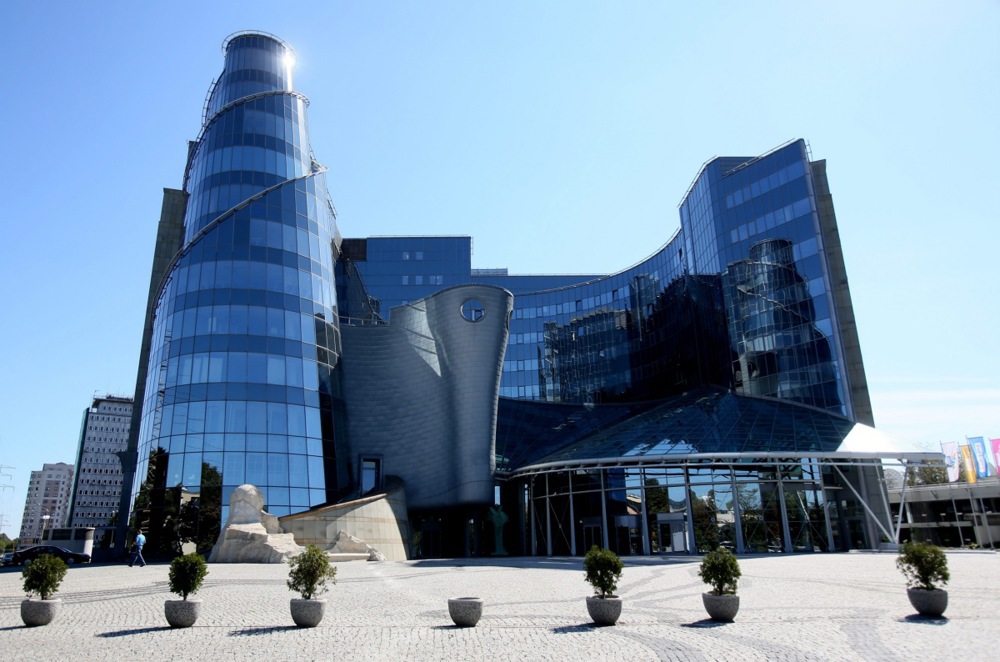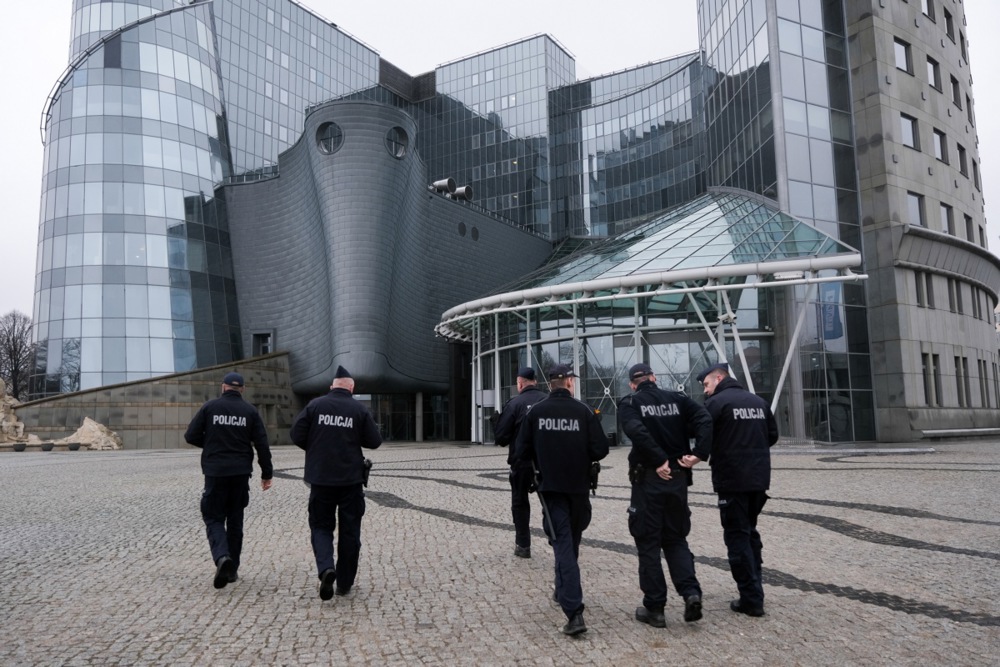Poland’s government-controlled broadcaster TVP (Telewizja Polska) has placed new notices warning photographers they may not photograph the corporation’s headquarters building in Warsaw.
New legislation which came into force in April banned photography at locations of importance to national security and defence.
The 25,000 “strategic sites” which cannot be photographed without a permit already include railway stations and other public buildings.
Out of the estimated 25,000 sites, only about 3 per cent are military facilities, with the rest being civilian infrastructure.
Those who disobey the ban and are caught could face a fine, arrest, or confiscation of equipment.
A reporter from independent conservative broadcaster TV Republika attempted to photograph the TVP building May 19, while covering a meeting to organise a May 21 presidential debate.
The reporter was stopped and cautioned that he should not be photographing the building.
The broadcaster, like all “strategic sites” falling under the new law, is now covered in notices in several languages saying taking photographs of the site is prohibited for reasons of national security.
The new Homeland Defence Act specifies “strategic” locations have to be clearly marked with 60 by 60 cm signs that show crossed-out cameras and a smartphone, and “photography prohibited” written in Polish, English, German, Russian, and Arabic.
These signs must be visible and placed at intervals of no less than 300 metres, says the law.
Since the headquarters of TVP is a well-known building, with thousands of photographs freely available online and on photograph agencies, many critics say it is difficult to understand why taking photographs of the building could be a security issue.
“The TVP building has been filmed and photographed so many times that you have got to be sick in the head to produce such a ban,” said Tomasz Sakiewicz, head of TV Republika.
The “abuse of security legislation is actually an attack on our defences,” he added.
Others were more sardonic.
“The ban on photography of the TVP building is actually a step in the right direction. Now we need a ban on filming and broadcasting programmes by TVP and we will all breath a sigh of relief,” Piotr Lisiewicz from portal Niezależna said sarcastically.
The TVP’s news channel TVP Info has lost 70 per cent of its viewers since the Tusk government appointed new heads for the broadcaster and its supervisory body. Critics claim it has had a pro-government bias since.
Prime Minister Tusk’s argument that key broadcasting networks are a part of national security was one of his reasons for the rapid and controversial takeover of TVP after the new government took office in 2023.
Earlier this year, Tusk also used national security arguments to place two commercial broadcasters, US Discovery-owned TVN and Polish owned Polsat, on a list of strategic companies whose takeover can be vetoed by the government.





